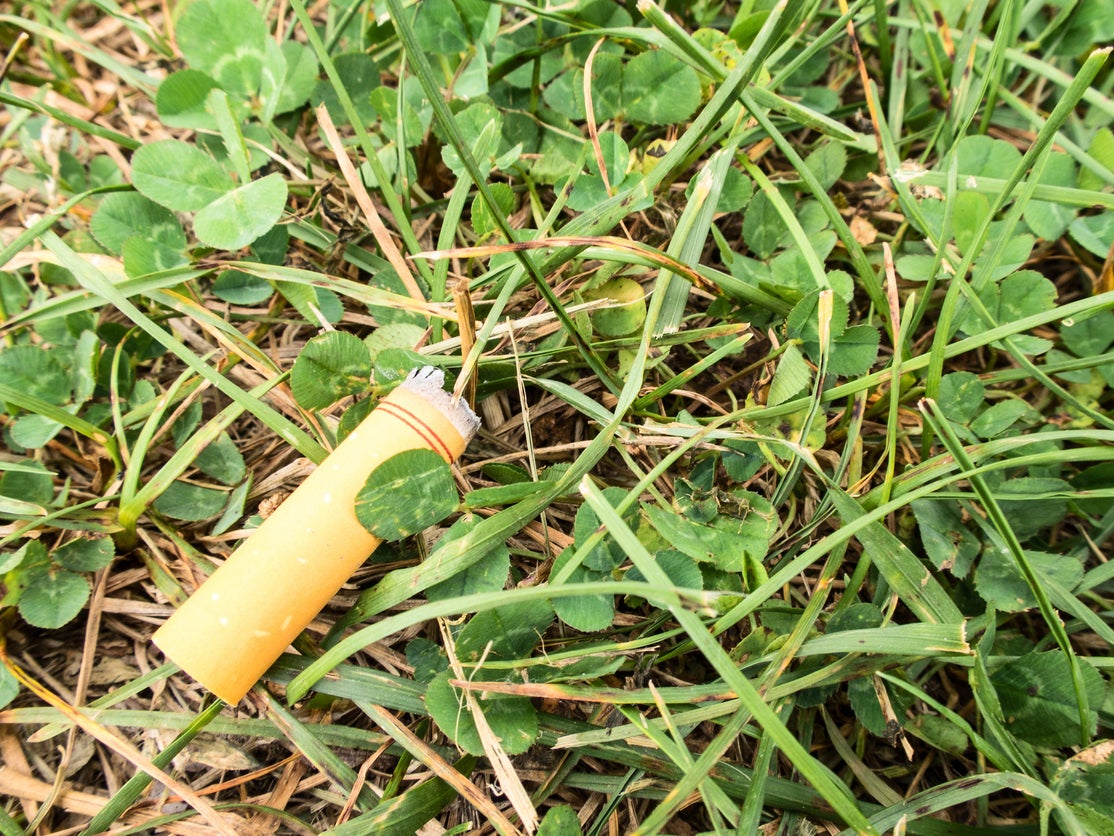Cigarette butts causing ‘serious damage to environment’, study on impact to plant growth reveals
Chemicals in filters thought to significantly reduce germination and growth of plants in areas where littering is prevalent

Your support helps us to tell the story
From reproductive rights to climate change to Big Tech, The Independent is on the ground when the story is developing. Whether it's investigating the financials of Elon Musk's pro-Trump PAC or producing our latest documentary, 'The A Word', which shines a light on the American women fighting for reproductive rights, we know how important it is to parse out the facts from the messaging.
At such a critical moment in US history, we need reporters on the ground. Your donation allows us to keep sending journalists to speak to both sides of the story.
The Independent is trusted by Americans across the entire political spectrum. And unlike many other quality news outlets, we choose not to lock Americans out of our reporting and analysis with paywalls. We believe quality journalism should be available to everyone, paid for by those who can afford it.
Your support makes all the difference.Cigarette butts are believed to be the most pervasive form of plastic pollution on the planet with trillions are discarded every year. Now new research has indicated they pose a significant risk to plant growth.
Usually made of cellulose acetate fibre, a type of bioplastic, cigarette filters can take decades to break down. An estimated 4.5 trillion are littered each year.
The presence of cigarette butts in soil reduces the germination success and shoot length of clover by 27 per cent and 28 per cent respectively, and in grass, germination success was reduced by 10 per cent and shoot length by 13 per cent, according to the new study published in the journal Ecotoxicology and Environmental Safety.
The research from a team led by academics from Anglia Ruskin University (ARU), showed that the root weight was reduced by 57 per cent.
But filters from unsmoked cigarettes had almost the same effect on plant growth as used filters, indicating that the damage to plants is caused by the filter itself, even without the additional toxins released from the burning of the tobacco, their report stated.
As part of the study, the team sampled locations around the city of Cambridge and found areas with as many as 128 discarded cigarette butts per square metre.
Control experiments contained pieces of wood of identical shape and size as the cigarette butts.
Lead author Dr Dannielle Green, senior lecturer in biology at ARU, said: “Despite being a common sight littering streets and parks worldwide, our study is the first to show the impact of cigarette butts on plants. We found they had a detrimental effect on the germination success and shoot length of both grass and clover, and reduced the root weight of clover by over half.
“Ryegrass and white clover, the two species we tested, are important forage crops for livestock as well as being commonly found in urban green spaces.
“These plants support a wealth of biodiversity, even in city parks, and white clover is ecologically important for pollinators and nitrogen fixation.”
“Dropping cigarette butts seems to be a socially acceptable form of littering and we need to raise awareness that the filters do not disappear and instead can cause serious damage to the environment,” said Dr Green.
Co-author Dr Bas Boots, added: “Although further work is needed, we believe it is the chemical composition of the filter that is causing the damage to plants.
“Most are made from cellulose acetate fibres, and added chemicals which make the plastic more flexible, called plasticisers, may also be leaching out and adversely affecting the early stages of plant development.”
Additional reporting by Press Association
Join our commenting forum
Join thought-provoking conversations, follow other Independent readers and see their replies
Comments